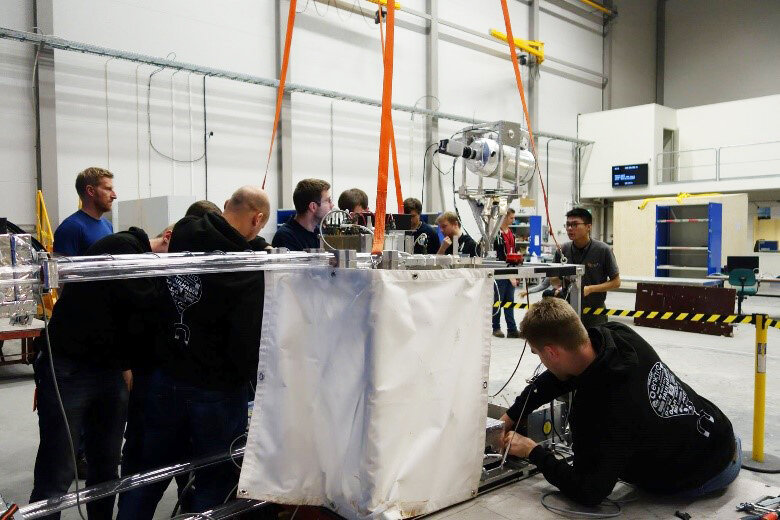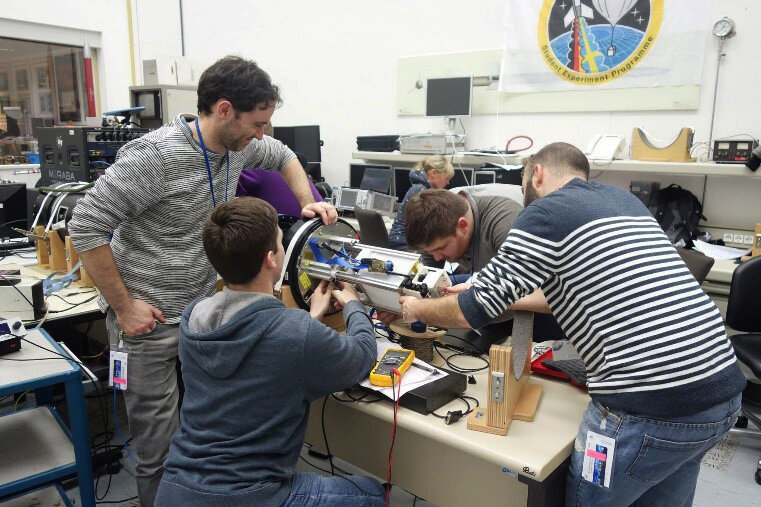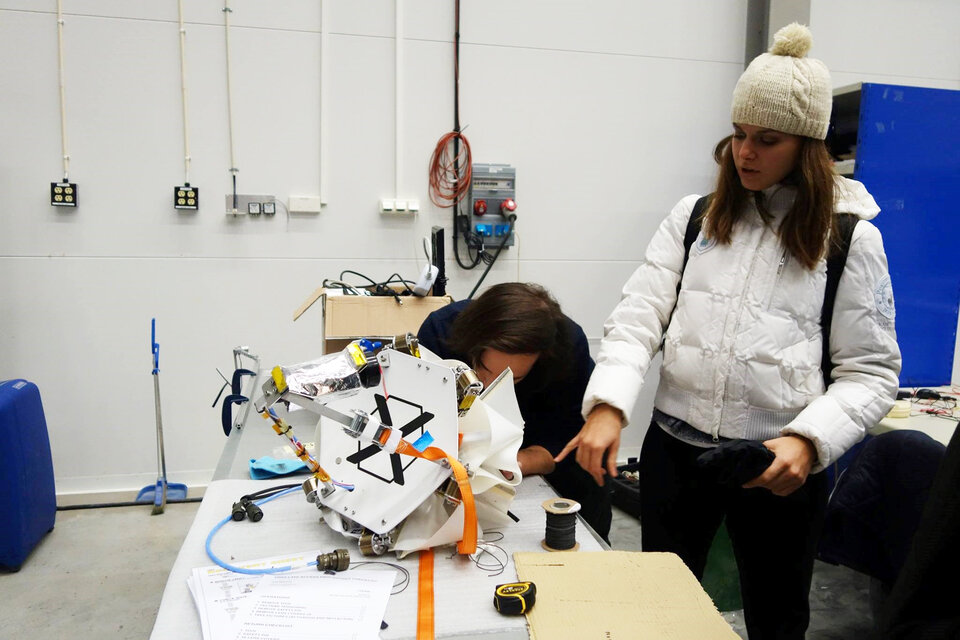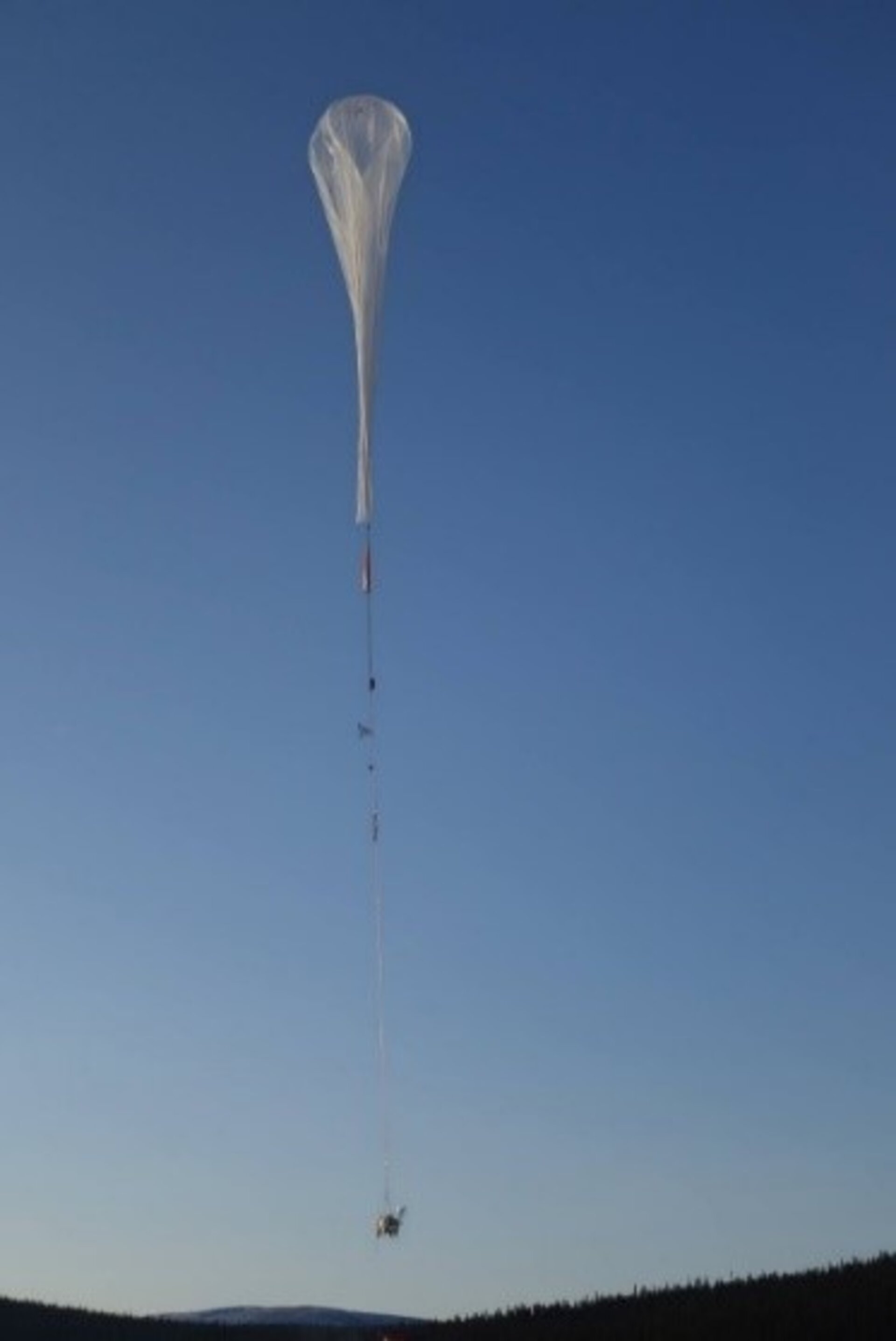Ready the rockets and bring on the balloons: call for students to launch high-altitude experiments!
For the 12th consecutive year, university students of different nationalities and backgrounds can finally make their dream come true: the ESA Education Office in collaboration with The Swedish National Space Agency (SNSA) and the German Space Agency (DLR) are offering the unique opportunity to develop a real space project from the initial idea through to the thrill of launch!
The REXUS/BEXUS programme is an adventure that has guided more than 1300 students from all over Europe throughout each stage of a space mission, providing enrichment from both a technical and personal point of view.
Thanks to this programme, university students from ESA Member and Associate States can design, assemble and test a real experiment, launch it in the upper atmosphere on either a rocket or a balloon and retrieve it for data analysis. At the same time, they will have a fascinating multicultural experience by meeting space industry professionals and like-minded students from throughout Europe, allowing for direct knowledge transfer and great networking opportunities!
The REXUS vehicle is a sounding rocket, which can reach an apogee of 75-90km (mesosphere region) with up to two minutes of reduced gravity, and can carry up to 40kg of payload. The BEXUS is a stratospheric balloon, which can carry a payload of 40-100 kg up to a float altitude of 20-30km (stratosphere) for 2-5 hours.

Every year, around 10 teams from the SNSA/ESA applications and 10 other German teams from the DLR applications are selected to participate in this exciting programme. The chosen teams, then, will be given the opportunity to travel around Europe to participate in real technical reviews, where experts from the most important space organisations and institutes in Europe will provide the teams with their extensive knowledge and expertise. Finally, at the end of the programme, successful teams will receive a “flight ticket” that grants their experiment a place on the required vehicle for their launch.
The different stages of the REXUS/BEXUS programme are:
- Preliminary Design Review (PDR), which takes place in conjunction with a training week at DLR’s Oberpfaffenhofen site near Munich.
- Critical Design Review (CDR) at ESA-ESTEC for BEXUS teams, and DLR-Oberpfaffenhofen for REXUS teams.
- Integration Progress Review (IPR) at the team’s university.
- Experiment Acceptance Review (EAR) also at the team’s university.
- Testing Phase, including an Integration Week at ZARM’s facility in Bremen and Bench Test in DLR Oberpfaffenhofen (both for REXUS only).
- Flight Readiness Review (FRR) at Esrange Space Centre before launch.

Students who want to apply to one of the programmes must create a team and send an experiment proposal to ESA before 15 October 2018. German students should apply via the parallel call for proposals from DLR.
To be eligible, teams must consist of students enrolled in universities from ESA Member or Associate States. The teams judged to have submitted the best proposals will then be invited to attend a selection workshop at ESA-ESTEC in the Netherlands from 27-29 November 2018, where they will present their project and justify to a panel of experts why their experiment should fly on one of the rockets or balloons.
In order to be selected, the experiment must show scientific or technological value; a high likelihood of success; educational value; and must be able to justify the need for a stratospheric balloon or a sounding rocket flight. Past experiments have featured areas of investigation ranging from atmospheric measurements to microgravity investigations, technology demonstrations for future space missions, and even biological sciences.
Applications are now open, and will close on Monday 15 October 2018.
German teams should see the separate call for applications raised by DLR.

More information, including videos, former teams’ documents, and designs and project ideas may be found at the following the REXUS/BEXUS website and the Education website.
The REXUS/BEXUS programme is realised under a bilateral Agency Agreement between the German Aerospace Center (DLR) and the Swedish National Space Agency (SNSA). Through the collaboration with the European Space Agency (ESA), the Swedish share has been made available to students from all ESA Member or Associate States.
EuroLaunch, the cooperation between the Esrange Space Center of SSC and the Mobile Rocket Base (MORABA) of DLR, is responsible for the campaign management and operations of the launch vehicles. Experts from DLR, SSC, ZARM, and ESA provide technical and logistic support to the student teams throughout the project.




